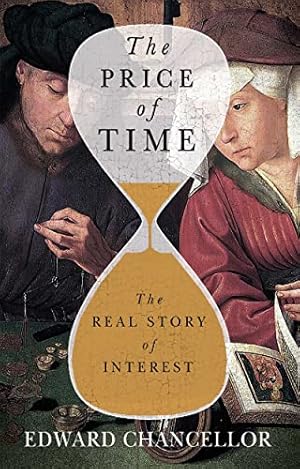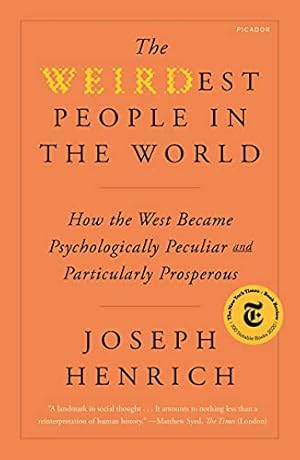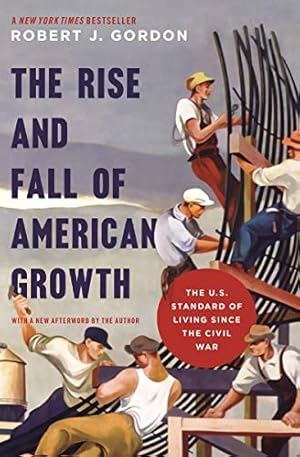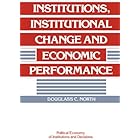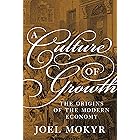Learn more
These promotions will be applied to this item:
Some promotions may be combined; others are not eligible to be combined with other offers. For details, please see the Terms & Conditions associated with these promotions.
- Highlight, take notes, and search in the book
- In this edition, page numbers are just like the physical edition
Your Memberships & Subscriptions

Download the free Kindle app and start reading Kindle books instantly on your smartphone, tablet, or computer - no Kindle device required.
Read instantly on your browser with Kindle for Web.
Using your mobile phone camera - scan the code below and download the Kindle app.

The Institutional Revolution: Measurement and the Economic Emergence of the Modern World (Markets and Governments in Economic History) Illustrated Edition, Kindle Edition
Few events in the history of humanity rival the Industrial Revolution. Following its onset in eighteenth-century Britain, sweeping changes in agriculture, manufacturing, transportation, and technology began to gain unstoppable momentum throughout Europe, North America, and eventually much of the world—with profound effects on socioeconomic and cultural conditions.
In The Institutional Revolution, Douglas W. Allen offers a thought-provoking account of another, quieter revolution that took place at the end of the eighteenth century and allowed for the full exploitation of the many new technological innovations. Fundamental to this shift were dramatic changes in institutions, or the rules that govern society, which reflected significant improvements in the ability to measure performance—whether of government officials, laborers, or naval officers—thereby reducing the role of nature and the hazards of variance in daily affairs. Along the way, Allen provides readers with a fascinating explanation of the critical roles played by seemingly bizarre institutions, from dueling to the purchase of one’s rank in the British Army. Engagingly written, The Institutional Revolution traces the dramatic shift from premodern institutions based on patronage, purchase, and personal ties toward modern institutions based on standardization, merit, and wage labor—a shift which was crucial to the explosive economic growth of the Industrial Revolution.- ISBN-109780226014760
- ISBN-13978-0226014760
- EditionIllustrated
- PublisherThe University of Chicago Press
- Publication dateOctober 25, 2011
- LanguageEnglish
- File size2.1 MB
Kindle E-Readers
- Kindle Paperwhite (5th Generation)
- Kindle Paperwhite
- Kindle Oasis
- Kindle Scribe, 1st generation (2024 release)
- All New Kindle E-reader (11th Generation)
- Kindle Touch
- Kindle Oasis (10th Generation)
- Kindle (10th Generation)
- All new Kindle paperwhite
- Kindle Paperwhite (11th Generation)
- Kindle Paperwhite (10th Generation)
- Kindle Voyage
- Kindle Scribe (1st Generation)
- Kindle
- Kindle Paperwhite (12th Generation)
- Kindle Oasis (9th Generation)
- All New Kindle E-reader
Fire Tablets
Shop this series
See full series- Kindle Price:$167.78By placing your order, you're purchasing a license to the content and you agree to the Kindle Store Terms of Use.
- Kindle Price:$290.76By placing your order, you're purchasing a license to the content and you agree to the Kindle Store Terms of Use.
- Kindle Price:$526.49By placing your order, you're purchasing a license to the content and you agree to the Kindle Store Terms of Use.
- Kindle Price:$724.85By placing your order, you're purchasing a license to the content and you agree to the Kindle Store Terms of Use.
Shop this series
This option includes 3 books.
This option includes 5 books.
This option includes 10 books.
This option includes 17 books.
Customers also bought or read
- The Mystery of Capital: Why Capitalism Triumphs in the West and Fails Everywhere Else
 Kindle Edition$12.99$12.99
Kindle Edition$12.99$12.99 - No Trade Is Free: Changing Course, Taking on China, and Helping America's Workers
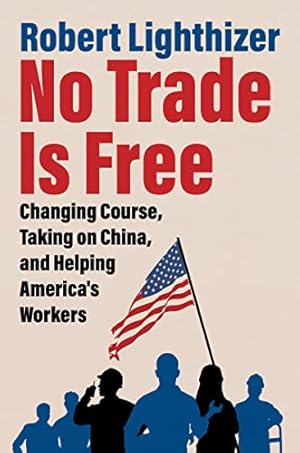 Kindle Edition$18.49$18.49
Kindle Edition$18.49$18.49 - The Rise and Fall of the Neoliberal Order: America and the World in the Free Market Era
 Kindle Edition$9.99$9.99
Kindle Edition$9.99$9.99 - The Chile Project: The Story of the Chicago Boys and the Downfall of Neoliberalism
 Kindle Edition$17.60$17.60
Kindle Edition$17.60$17.60 - The Prize: The Epic Quest for Oil, Money & Power#1 Best SellerPetrochemical Engineering
 Kindle Edition$18.99$18.99
Kindle Edition$18.99$18.99 - The Rise and Fall of Classical Greece (The Princeton History of the Ancient World Book 1)
 Kindle Edition$9.99$9.99
Kindle Edition$9.99$9.99 - Sovereign of the Market: The Money Question in Early America (American Beginnings, 1500-1900)
 Kindle Edition$30.99$30.99
Kindle Edition$30.99$30.99
Customers who bought this item also bought
Editorial Reviews
Review
"What are the connections among aristocrats, duels, private lighthouses and private police forces in the conduct of early modern economies? Douglas W. Allen in The Institutional Revolution brings together a whole series of customs and behaviors we now associate with irrational premodern practices and shows the part they played as informal institutions to ensure the provision of civil service goods before the nineteenth century."
― Times Literary Supplement Published On: 2012-10-26
“Douglas W. Allen has written a brilliant and challenging book that puts the measurement problem in the foreground to convincingly explain the logic of premodern institutions—institutions that the typical modern person, until reading Allen, views as the embodiment of chaos, inefficiency, corruption, and ineptitude. The Institutional Revolution contains a wealth of historical information that anyone with an interest in history will find interesting and often delightful.”
-- Thráinn Eggertsson, New York University“This is a very important book that increases understanding of how changes in measurement and institutions can increase trade and welfare. Allen uses economic logic to show that quaint premodern institutions—including the social rules of the old aristocracy, and the practice of dueling—aligned incentives at a time when variance in outcomes due to the enormous effects of nature could not easily be separated from those due to human behavior. Especially interesting is his insight into how the industrial and institutional revolutions in Britain developed interactively. This wonderful book sets the groundwork for further essential investigation into the micro foundations of specific institutional changes and economic growth, topics that are at the forefront of modern efforts to increase welfare.”
-- Gary D. Libecap, University of California, Santa Barbara Published On: 2011-08-15“I thoroughly enjoyed this excellent book.”
-- Tyler Cowen ― Marginal Revolution Published On: 2011-08-15“In the early modern period, British aristocrats engaged in a panoply of seemingly inefficient activities. They owned grandiose, high-maintenance estates. . . . They refused to engage directly in any commercial activity and spent their hours cultivating demanding but seemingly useless skills like, music, dancing, repartee, and Latin conjugations. Yet, despite these apparently wealth-destroying behaviors, aristocrats grew wealthy, often astoundingly wealthy. As Allen asks in his marvelous book, ‘what economic puzzle were they solving in order to generate this wealth?’ . . . A milestone in the New Institutional Economics." -- Richard N. Langlois, Review of Austrian Economics
About the Author
Douglas W. Allen is the Burnaby Mountain Professor of Economics at Simon Fraser University in Canada. He is the author of numerous books, including The Nature of the Farm: Contracts, Risk, and Organization in Agriculture.
Excerpt. © Reprinted by permission. All rights reserved.
The Institutional Revolution
Measurement and the Economic Emergence of the Modern World By DOUGLAS W. ALLENTHE UNIVERSITY OF CHICAGO PRESS
Copyright © 2012 The University of ChicagoAll right reserved.
ISBN: 978-0-226-01474-6
Contents
Preface.............................................................ix1 Introduction......................................................12 Variance Everywhere...............................................223 The Aristocrats...................................................444 A Matter of Honor.................................................805 The Royal Navy....................................................1066 Purchasing Army Commissions.......................................1467 Light houses, Private Roads, and the Treasury.....................1728 The Courts, Criminal Law, and Police..............................1919 Conclusion........................................................217Notes...............................................................229Bibliography........................................................251Index...............................................................263Chapter One
IntroductionTo my Lords in the morning, where I met with Captain Cuttance, but my Lord not being up I went out to Charing Cross, to see Major-general Harrison hanged, drawn, and quartered; which was done there, he looking as cheerful as any man could do in that condition. He was presently cut down, and his head and heart shown to the people, at which there was great shouts of joy. SAMUEL PEPYS, The Diary of Samuel Pepys, October 13, 1660
If it were not for his remarkable diary and detailed records, Samuel Pepys would hardly rate a footnote in history as an able naval administrator. But he did write a literary gem of a diary, in which his personal accounts and keen observations of life in seventeenth-century London enjoyably take us back in time to a world much different than our own. Today many (though perhaps not that many) read the diary for a firsthand account of the Great Plague of 1665 or the Great Fire of London in 1666, or simply to feel nostalgia for days gone by in Freshman English. But even a casual reader cannot overlook some outlandish curiosities ... like how it came to pass that a major-general was hanged, drawn, and quartered in public, much to the thrill of onlookers. Some readers are old enough to remember hanging as a capital punishment, but no one today has any experience with a public drawing and quartering.
There is more to Pepys's diary than gory dismemberment. By any account, Pepys was a successful man: chief secretary to the Admiralty, justice of the peace, member of Parliament, fellow and president of the Royal Society, and brother and master of Trinity House, to name only a few posts. Some of these positions ring familiar, others less so, but a closer inspection of any single office reveals many strange things.
For example, Pepys got his start in the navy when his first cousin once removed, Sir Edward Montagu, was willing to act as his patron. A patron in Pepys's day was a person of influence who, with a word, could make or break a career. A patron was almost always necessary for any advancement in what we would now call the "public ser vice," and Sir Edward had his own—a well-known character named King Charles II. Charles granted Montagu a number of titles, offices, and honors—including the 1st Earl of Sandwich—for his loyal ser vice during the restoration of his Crown in 1660, and his positions allowed Montagu to influence the Admiralty to grant Pepys his first office, the clerk of the acts, in the navy. Pepys had no administrative experience or formal knowledge of the navy, but this hardly mattered at the time. Patronage appointments were given to people whom the patron could trust; ability was a distinctly secondary matter. What was also strange about Pepys's office, along with most others of the age, was that it became a matter of (mostly) private property once received. When Pepys became the clerk of the acts, he owned the office the way we now own our homes: he could sell, borrow against, and earn an income from it.
As a member of Trinity House, Pepys was part of an ancient monopoly organization that privately built light houses and actually charged ships for the ser vice: no payment, no light. When he was elected to Parliament, it was first on behalf of a Lord Howard, and very few of his countrymen were allowed to vote—perhaps none of them freely, given the lack of secret ballots, the influence of sheriffs, and the ownership of many boroughs by high nobility. Though a justice of the peace, he received no salary for his efforts, and he openly accepted bribes at his naval office. His day-to-day life was very commonplace for a gentleman, but he also lived in quiet fear that someone might challenge him to a duel. Thus, Pepys provides a nice example of the paradox of life between the modern and the pre-modern world. On the one hand, Pepys's life was as ordinary as a human life could be: he worried about his supper and his gold, he was proud that his home had a spare bed for visitors, he pursued his mistresses, and he gossiped about his friends and co-workers. And yet, on the other hand, his life took place within the context of a set of social rules, norms, and organizations quite alien—and often offensive—to us today. In the West, patronage and bribes now imply corruption, duels are long gone, and universal suffrage with a secret ballot is a fundamental right. Indeed, it is this contrast in institutional context between the past and present that rivets students of history to the Pepys narrative.
In general, what often attracts us to history is the exotic within the context of the ordinary. We marvel at the spectacular military leader in an otherwise common battle. We are drawn to understand polygamy and arranged marriage among almost universal monogamous heterosexual marriage. Although we relate to, and sympathize with, the complaints of the eighteenth-century shipowner over excessive port taxes, we are more curious about the private "tax farmer" who paid the Crown for the right to collect the dues. And, of course, we are flabbergasted at the seventeenth-century diarist who unabashedly traded naval contracts for every form of payment from cow's tongue to sexual favors. If history did not have these exotic episodes, if the organization of life never changed, or if we could not relate to the individuals of the past, then history would make an unattractive study indeed. Fortunately, history has the common thread of humanity that makes it relevant. Doubly good is that its organizational detail changes over time and is therefore compelling and interesting.
Economics provides a useful tool for understanding the past because the human experience, over time, is connected through a common economic reality. At the most fundamental level, all people at all times have dealt with the problem of scarcity. There has never been enough, there will never be enough, and as a result people always have been driven to find better ways to increase their wealth and consumption. Scarcity has several universal implications: choices always have had to be made, trade-offs always have existed, actions always have had costs, and there always have been winners and losers. Modern readers recognize the signs of scarcity in our past and understand things like sibling rivalry—whether told through Cain and Abel, the daughters of King Lear, or Michael and Fredo Corleone in The Godfather. Humans have always used innovations to reduce the level of scarcity; thus technology, which is ever present in one form or another, has improved over time. Markets have also existed since antiquity, and life throughout history is a continuous attempt to get and produce more through exchange. The Romans had capital markets and interest rates. In many ways the baker of antiquity was similar to our baker on the corner because all bakers are simply trying to make a living.
What then, in a broad sense, is different? What captures our attention when we see a historical society different from our own? Economists naturally tend to focus on measures of well-being such as technology, incomes, height, or the absence of violence. This is an economic history of quantifiable averages. Output has increased over time, along with population and per capita incomes—on average. Health is better, people are taller, transportation is faster—on average. This is all well and good, but it often fails to capture what many sense to be a greater difference. Armies today are not just more deadly on average; they look different. They wear camouflage, do not fight in tight formations, are not composed of foreign mercenaries, and do not receive compensation through the spoils of battle. If we go back to our friend Samuel Pepys, we see that a middle-class administrator in the British navy today would have more possessions and live longer, but we are also aware that no one in the West today nonchalantly watches a man's heart get ripped out in a public square. So we realize that there is more to change over time than just a difference in averages.
Nevertheless, it is unfair to accuse economists of being completely focused on averages. Many have recognized that a major component of what differs over time are the rules we live by and how life is organized.. For the moment, call these rules "institutions." The more institutions differ over time, the more different the past appears. Today, in the West, the world is considered "modern." By that is meant a world governed by a series of secular institutions: the rule of law; well-enforced property rights; elected democratic governments; human rights; public provision of courts, health care, national defense, and education; professional ser vices; regulated markets; concerns over social welfare and income distributions; and the concept of individual liberty within a modern state. We are comfortable with corporations producing food, with public police investigating our stolen automobiles, with money used as a unit of account for everything, with wage labor, with free mobility, and with individuals determining who they will marry and what occupation they will have. Perhaps above all, we expect to have equal social standing among our neighbors. Ours is a society based on a concept of merit, and those who work hard and produce much expect to be rewarded. The race may not always be to the swift, but the laborer is worthy of his hire, and we believe that, with effort and a little luck, anyone can reach the top of the social ladder. But it was not always so.
Not so long ago there was a strong social class structure where a large gulf separated ordinary people from the elite, and seldom did one cross over from one station to the other. Masters controlled servants, and both knew their place in the world. Merit was valued, but it was not the coin of the realm—personal connections, conduct, and birth mattered much more. Markets and prices existed for votes, state offices, and roads. There were jails where criminals were temporarily housed, but no penitentiaries for long-term incarceration and reform. There was money, but many payments were made in kind, with truck and barter, or through gleaning scraps off the workroom floor. There were watchmen but no police. The institutional landscape was shockingly different in the pre-modern world.
Amazingly, our Western world has been institutionally modern for only a short period. Institutions tend to last longer than any one person, and as a result, even a relatively young institution can feel old to the current generation. Communism, at the time of the fall of the Berlin wall, might as well have been an ancient form of government to the twenty-and thirty-somethings who pounded away at the concrete with sledgehammers in November 1989. The leaders were old, the state machinery was tired, the barbed wire was rusted, and everything about the system appeared outdated. Yet formal communist governments were just over 70 years old—mere infants in the life cycle of an institution.
It is because our world has been modern only since around the middle of the nineteenth century that we do not have to go far back in time before institutions become foreign to our modern senses. Our local government administrations; systems of taxation; our widespread views on marriage, occupation, and social status; the practice of universal suffrage; and our sense of individualism, to name but a few, are all relatively recent institutional innovations. Institutionally speaking, if someone today could teleport back in time from modern America to late Victorian En gland, it would not be much different than traveling from Los Angeles to Christchurch—with apologies to the beautiful city of Christchurch. The traveler would notice some less functional plumbing and the absence of insulation, but the rules of the game would be basically the same. The traveler would be able to get by.
The same could not be said of traveling back to the middle of the eighteenth century, and it would involve more than noticing all the bad teeth and lack of cell phones. Much of the organization of life was different in the pre-industrial world, and a modern time traveler would be hard-pressed to fit in or understand it all. The institutional reality is that around 1850 the modern world—the world containing the modern institutions we are accustomed to—emerged. This is not to say there was no institutional overlap between the modern and premodern world—of course there was. There were elections in 1500 and 1900; there were banking, commerce, and coins; there were stocks, bonds, and interest rates; and there were families, firms, and churches. Some pre-modern institutions hardly changed at all over the course of the Industrial Revolution, but many changed in some manner, while others were completely transformed, discarded, or invented. Overall, and especially with respect to civil ser vices, our modern world emerged out of a time organized far differently. Often the changes in the rules of life were so radical that we are now dismayed the old rules ever existed at all. Dueling? How barbaric! Lordship? How evil!
At some level, we are familiar with the historical organizations covered in this book. Almost everyone recognizes a picture of Queen Elizabeth II and knows something of the House of Lords—if only its existence. But few of us, except for fans of Jane Austen, are familiar with the institutional rules that governed the lives of the pre-modern aristocrats that allowed them to govern a nation for 300 years. Many have seen the movie version of The Count of Monte Cristo, where the wrongfully accused Edmond Dantès, after his revenge against his rivals, purposely shoots wide in an unanticipated duel with his son. Little do we realize that this type of behavior—shooting wide, not dueling—was not allowed and was equivalent to declining the duel in the first place. It is only by examining the details of pre-modern institutions that we appreciate the deep institutional changes that took place throughout the nineteenth century.
The institutions analyzed in this book are all of this sort—seemingly odd ones that either ended or were created over this transition period. They mostly span the time period I will call "pre-modern," that time after the fall of feudalism in En gland (c. 1500) until the Industrial Revolution was well on its way (c. 1850). In terms of English monarchs, the period spans from the first pre-modern ruler, Henry VIII, to the first modern one, Victoria. By the end of this time period there was what can only be described as a revolution in institutions. The Institutional Revolution was mostly—but not exclusively—centered on the changes that took place in the rules of public governance, and so the topics covered here include a host of institutions we now consider part of the public service: a nonexhaustive list includes the aristocrats, dueling, naval and army administration, light houses, private roads, taxation, factories, private police, and the evolution of criminal law.
Other institutions changed as well, and some contemporary writers such as Marx and Engels noticed what was going on:
The bourgeoisie, wherever it has got the upper hand, has put an end to all feudal, patriarchal, idyllic relations. It has pitilessly torn asunder the motley feudal ties that bound man to his "natural superiors", and has left remaining no other nexus between man and man than naked self-interest, than callous "cash payment".... It has resolved personal worth into exchange value, and in place of the numberless indefeasible chartered freedoms, has set up that single, unconscionable freedom—Free Trade..
Although they clearly did not approve, Marx and Engels were on to something. They noticed a change was afoot; they recognized the past was not all bad; and they identified freedom to exchange as a key to the modern world.
My purpose here is to make the general claim that "measurement costs" are the common source behind the Institutional Revolution that troubled Marx and Engels. Free trade and the ability to socially interact with only "naked self-interest" and "callous cash payment" required the ability to measure what was being traded. Until this ability to measure materialized, communities required "patriarchal relations," "feudal ties," and "chartered freedoms" to get many things done. Which is not to say there was only a single source. Institutions arise and develop over several factors; I wish to highlight an important one that has been ignored.
(Continues...)
Excerpted from The Institutional Revolutionby DOUGLAS W. ALLEN Copyright © 2012 by The University of Chicago . Excerpted by permission of THE UNIVERSITY OF CHICAGO PRESS. All rights reserved. No part of this excerpt may be reproduced or reprinted without permission in writing from the publisher.
Excerpts are provided by Dial-A-Book Inc. solely for the personal use of visitors to this web site.
Product details
- ASIN : B00631IE2Q
- Publisher : The University of Chicago Press; Illustrated edition (October 25, 2011)
- Publication date : October 25, 2011
- Language : English
- File size : 2.1 MB
- Text-to-Speech : Enabled
- Screen Reader : Supported
- Enhanced typesetting : Enabled
- X-Ray : Not Enabled
- Word Wise : Enabled
- Print length : 282 pages
- Page numbers source ISBN : 0226014746
- Best Sellers Rank: #815,061 in Kindle Store (See Top 100 in Kindle Store)
- #677 in Economic History (Kindle Store)
- #826 in History of Germany
- #1,525 in History of United Kingdom
- Customer Reviews:
Customer reviews
Customer Reviews, including Product Star Ratings help customers to learn more about the product and decide whether it is the right product for them.
To calculate the overall star rating and percentage breakdown by star, we don’t use a simple average. Instead, our system considers things like how recent a review is and if the reviewer bought the item on Amazon. It also analyzed reviews to verify trustworthiness.
Learn more how customers reviews work on AmazonCustomers say
Customers find the book engaging, with one noting that every page has something interesting. Moreover, they appreciate its readability and research quality, with one customer highlighting its great insights into institutional innovations.
AI-generated from the text of customer reviews
Select to learn more
Customers find the book's content engaging, with one customer noting that every page has something interesting, while another appreciates its compelling prose.
"...This is one of them. In clear, compelling prose, Simon Fraser University (BC) economist Douglas W. Allen elucidates some really mysterious aspects..." Read more
"...He provides an accessible, sophisticated and fun explanation for many disparate features of the past and present world...." Read more
"This is a very very interesting book. Every page has something interesting, some idea that was new to me...." Read more
Customers find the book readable.
"This is an absolute MUST READ not just for understanding the historical period the author discusses – it’s most important implications are for..." Read more
"It was a good read. Many examples to illustrate the author's central argument are spot-on...." Read more
"Great book for those who want to understand something of how the modern economic world came into being." Read more
Customers appreciate the research quality of the book, with one customer highlighting its well-researched content and another noting its great insights into institutional innovations.
"Good science, like a good joke, has anticipation, surprise, and recognition. Here, Douglass Allen does that splendidly...." Read more
"This is a very very interesting book. Every page has something interesting, some idea that was new to me...." Read more
"Great insights to institutional innovations for the digital environment..." Read more
Top reviews from the United States
There was a problem filtering reviews. Please reload the page.
- Reviewed in the United States on March 9, 2012Every once in awhile, a book appears that cuts through all of the crap and illuminates the dark recesses of our world. This is one of them. In clear, compelling prose, Simon Fraser University (BC) economist Douglas W. Allen elucidates some really mysterious aspects of life in Britain in the 17th, 18th, and 19th centuries, like why grown men tried to kill each other for seemingly no reason, why aristocrats apparently wasted so much time and effort learning useless skills and honing their expertise at dead languages, why governments used to SELL government offices and military commands, and why admirals and generals were sometimes shot, hung, and/or drawn and quartered (ripped to pieces) to the delight of onlookers. Most refreshingly of all, there isn't an equation or even a table in the whole book. Prof. Allen appears to seek the truth, or at least a closer approximation of it than hitherto achieved, and not the accolades of academic economists with their heads up their econometrics and fancy models. Most importantly of all, Allen's insights and methods can be applied to contemporary institutional puzzles. The book isn't perfect -- no book is -- but anyone interested in predicting or perhaps even directing institutional changes in the here and now should read this book, twice if not thrice.
- Reviewed in the United States on December 12, 2016Great resources for colege essayists.
- Reviewed in the United States on February 17, 2013This is an absolute MUST READ not just for understanding the historical period the author discusses – it’s most important implications are for understanding the necessary institutional innovations that the digital environment will bring forward. The ability to measure a range of variables that were previously unmeasurable brought about new types of institutions – (e.g. rules of the game – while organizations can be players in the game). The author focuses on the emergence of institutions related to economic transaction costs related to whether or not situations can be monitored or must be based on establishing conditions of trust.
The capacity of the digital environment to develop whole new forms of data – as in Big Data, and increasingly ubiquitous sensor technologies are already disrupting many industries and domains of activity. These disruptions will continue to shape new institutions of our society. This book provides great insight into the nature of institutional innovations that will be necessary for the new economy and the fundamentally exponential increases in human capital and productivity. Highly recommended.
- Reviewed in the United States on March 28, 2021It was a good read. Many examples to illustrate the author's central argument are spot-on. For those who enjoyed this book, try Yoram Barzel's "Economic Analysis of Property Rights" and Douglas North's "Institutions, Institutional Change, and Economic Performance." These are all eye-openers.
- Reviewed in the United States on May 4, 2012Good science, like a good joke, has anticipation, surprise, and recognition. Here, Douglass Allen does that splendidly. He provides an accessible, sophisticated and fun explanation for many disparate features of the past and present world. Why were the English aristocrats socially productive? How did the British navy come to dominate the seas? Why has English become the dominant international language? And much more. For anyone interested in institutions--the rules of the game, formal and informal--where they come and their impact, this is to be highly recommended. You will see the world through new lenses. As with a good joke, you will be passing on your surprise and recognition to friends and colleagues. A rare treat.
- Reviewed in the United States on August 27, 2018This is a very very interesting book. Every page has something interesting, some idea that was new to me.
The topic varies but each variation is very well researched, presented, and INTERESTING.
- Reviewed in the United States on September 28, 2015Great book for those who want to understand something of how the modern economic world came into being.
- Reviewed in the United States on March 10, 2012For those who aren't familiar with Doug Allen's academic research, you are in for a real treat. Nonacademics should definitely not be put off by the the fact that this book is published by the University of Chicago. It is readily accessible book. Allen applies economics from dueling to the rise of the civil service to the rise of public police departments to why private lighthouses declined. People have a tendency to assume that the way things are organized today is the way that they always have been. Yet, it was not until the nineteenth century that policing in England became publicly provided (the same is true in the US).
Have you ever wondered why dueling got started or ended? Why the detailed rules were set up the way they were? Why seconds were used?
Given my own interest in crime, the discussion on the rise of public police is especially interesting. Who would have thought that so much could be explained by just the standardization of goods? Standardization, with the increased anonymity of exchanges, made it easier to steal.
How about this for an interesting fact: "By 1890, 'only three people in all of England and Wales were sentenced to death for murder committed with a revolver.' All of this was done in the context of private provision of police and justice." (I will just add that this was in an era when gun ownership was very common and there were no gun control laws.) But this is just one example of the fascinating facts that one continually comes across in Allen's book.
One question that I had in reading the discussions for the end of private lighthouses or private law enforcement was how much of this was a desire to create wealth transfers. For example, it is possible that firms turned to public law enforcement to stop theft from their factories and shops because the government was better at doing this job, but could it also be possible that private firms simply wanted someone else (namely taxpayers generally) to pay these costs?
But one verdict is clear, Allen has shown in a fun, very easily understandable way how economics can be applied to problems that most people thought impossible.
Top reviews from other countries
 KeaganReviewed in Canada on November 27, 2017
KeaganReviewed in Canada on November 27, 20175.0 out of 5 stars Five Stars
The best book ever written
















